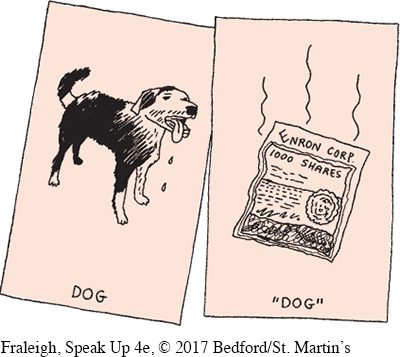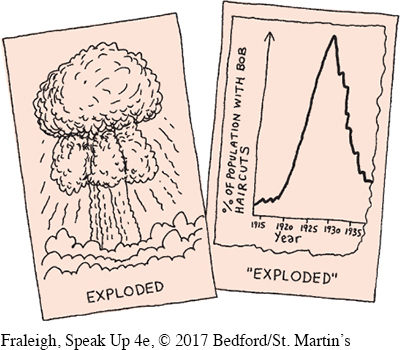Connotative Meaning
Many words also have at least one connotative meaning—an association that comes to mind when people hear or read the word. A word’s connotative meanings may bear little or no resemblance to its denotative meanings. For example, when used as a noun in a statement about stocks, the word dog may connote a poor investment opportunity—
By using words in your speeches deliberately for their connotative meanings, you can make a powerful impression on your audience. For example, a student named Betty made the following statement in her presentation on the history of hairstyles in the twentieth century: “In the roaring twenties, the short ‘bob’ or ‘flapper’ haircut exploded onto the scene through the rise of silent film star Louise Brooks.” When Betty used the verb exploded, she triggered the strong, fiery association that most people have with the word. This savvy use of the connotations of exploded helped Betty make her point far more forcefully than if she had merely said that the bob “became very popular.”
On the other hand, carelessly using a word that has very different denotative and connotative meanings can backfire and confuse your audience. Consider Albert, a student who made the following statement in an impromptu speech about a school district’s refusal to lower the student-
343

